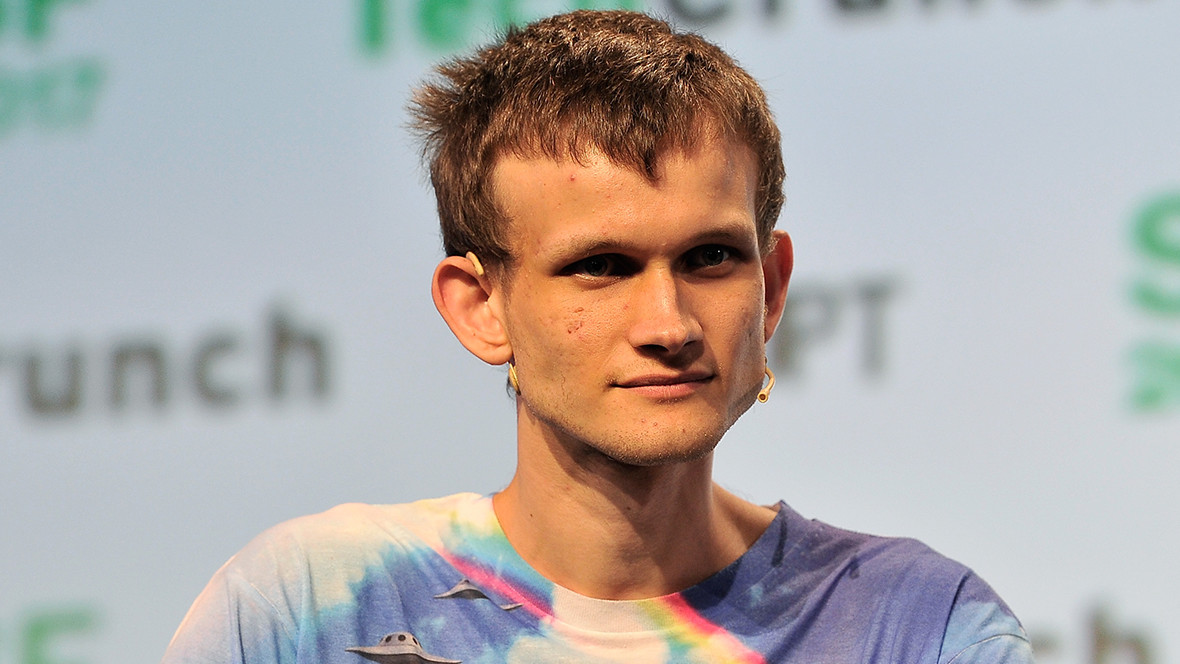Vitalik Buterin Warns Digital ID Projects Could End Pseudonymity
29.06.2025 9:00 2 min. read Kosta Gushterov
Ethereum co-founder Vitalik Buterin has voiced concerns over the rise of zero-knowledge (ZK) digital identity projects, specifically warning that systems like World — formerly Worldcoin and backed by OpenAI’s Sam Altman — could undermine pseudonymity in the digital world.
In a post published on Saturday, Buterin addressed the benefits and risks of digital ID models that use zero-knowledge proofs to verify user authenticity without revealing personal data. While these systems are designed to prove a user is a “unique human,” Buterin cautioned that the current trajectory may lead to a centralized, rigid identity framework.
“Under one-per-person ID, even if ZK-wrapped, we risk coming closer to a world where all of your activity must de-facto be under a single public identity,” he wrote.
World and the Growing Trend of ZK-Wrapped Digital Identity
World claims to have signed up over 13 million users using its biometric-scanning Orb device to assign a unique ID. While the project employs ZK proofs to safeguard identity data, Buterin remains skeptical of the long-term implications.
He argued that even privacy-preserving mechanisms like ZK proofs could become problematic if linked to rigid, one-to-one digital identities. In such a model, users might no longer be able to manage multiple pseudonymous accounts, a core feature of today’s digital landscape.
“Taking away the option for people to protect themselves through pseudonymity has significant downsides,” Buterin warned, especially in an era of increasing technological threats like AI and drones.
READ MORE:
FEPE token
The Case for a Pluralistic Identity System
While Buterin acknowledged ZK-wrapped ID systems could help combat spam, bots, and AI-generated manipulation across social media, voting, and online services, he emphasized the need for flexibility.
He cautioned that social apps could easily default to “one ID, one account,” which would mimic a real-name policy and stifle personal privacy. Instead, he proposed a pluralistic approach, where no single platform or government controls identity issuance.
“Weak ID systems, like Google accounts today, still let users manage multiple accounts,” Buterin said. “We should preserve that flexibility rather than enforcing rigid identity structures.”
-
1
Polygon Breaks from Decentralization as Sandeep Nailwal Assumes Full Control
11.06.2025 20:00 2 min. read -
2
Nvidia CEO Urges UK to Invest in AI Infrastructure or Risk Falling Behind
10.06.2025 9:00 1 min. read -
3
KuCoin Plants Its Flag in Bangkok With a Licensed Thai Exchange
14.06.2025 13:00 1 min. read -
4
Why Gold Could Be the Smart Play Amidst US Debt Surge
11.06.2025 11:00 1 min. read -
5
NFTs Quietly Evolve Into Core Digital Infrastructure
13.06.2025 17:00 2 min. read
Coinbase Surges 43% in June, Tops S&P 500 After Regulatory Wins and Partnerships
Coinbase has emerged as the best-performing stock in the S&P 500 for June, climbing 43% amid a surge of bullish momentum driven by regulatory clarity, product innovation, and deeper institutional interest in crypto.
What Brian Armstrong’s New Stats Reveal About Institutional Crypto Growth
Coinbase CEO Brian Armstrong has spotlighted a significant acceleration in institutional crypto adoption, driven largely by the surging popularity of exchange-traded funds and increased use of Coinbase Prime among major corporations.
Whales Buy the Dip as Retail Panics: This Week in Crypto
The latest market turbulence, fueled by geopolitical tensions and investor fear, offered a textbook case of how sentiment swings and whale behavior shape crypto price action.
What Will Happen With the Stock Market if Trump Reshapes the Fed?
Jefferies chief market strategist David Zervos believes an upcoming power shift at the Federal Reserve could benefit U.S. equity markets.
-
1
Polygon Breaks from Decentralization as Sandeep Nailwal Assumes Full Control
11.06.2025 20:00 2 min. read -
2
Nvidia CEO Urges UK to Invest in AI Infrastructure or Risk Falling Behind
10.06.2025 9:00 1 min. read -
3
KuCoin Plants Its Flag in Bangkok With a Licensed Thai Exchange
14.06.2025 13:00 1 min. read -
4
Why Gold Could Be the Smart Play Amidst US Debt Surge
11.06.2025 11:00 1 min. read -
5
NFTs Quietly Evolve Into Core Digital Infrastructure
13.06.2025 17:00 2 min. read

